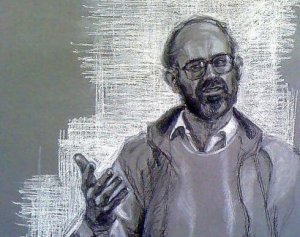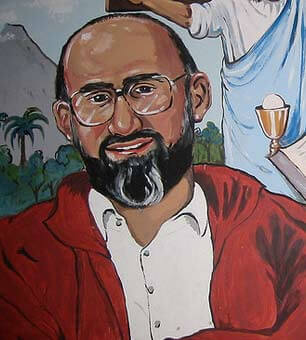Ignacio Martín-Baró and Liberation Psychology

Ignacio Martín-Baró was the father of liberation psychology, a movement which completely changed our understanding of social psychology. Inspired by other liberation movements, Martín-Baró focused on studying people’s problems and circumstances.
Community psychology stemmed from his ideas. It focuses on empowering communities, fighting poverty, and defending democracy and mental health.
Martín-Baró’s life
Ignacio Martín-Baró was born in Valladolid, Spain in 1942, far from where he would develop the theory of liberation psychology. After joining the Jesuit order and becoming a priest, he was sent to Central America. There, he studied philosophy, theology, and psychology, and eventually settled down in San Salvador, El Salvador.
He wrote his doctoral thesis on social attitudes and conflicts in that country. More specifically, he wrote about low-class population density in that part of the world.
He also lectured in several universities in many different countries, but spent the most time at the Central American University in San Salvador.
He and several other Jesuit priests were murdered on November 16th, 1989 by El Salvador’s army, under orders from General René Emilio Ponce. Now, they’re all seen as martyrs.

Liberation theology and philosophy
Liberation psychology has its roots in three earlier movements. There movements are: liberation theology, liberation philosophy, and liberation pedagogy. Liberation theology advocates for helping those that are most in need: the poor. It’s a Christian movement that focuses on the oppression and injustice the lower-class faces through social sciences.
“Dear progressive sociologists, Dear social psychologists: don’t screw around so much with alienation here where what’s most screwed up is the alien nation.”
-Roque Dalton-
Liberation philosophy is about creating knowledge. It says that most of the things we study come from middle and upper-class Western men and that we don’t see other people’s knowledge as valid. Liberation philosophy argues that we have to learn by talking with the “others” we never consider.
Liberation pedagogy
It comes from Paulo Freire‘s theories. He believed that liberation would come through education. It considered that people were rational beings who could reflect on their own realities.
Thus, liberation pedagogy was about teaching people how to think critically and practically. It was also about teaching people egalitarian values without trying to indoctrinate them. Lastly, it was about educating people based on their own needs, not the needs of the economy.
Ultimately, its goal was to help people understand the world through critical reflections of their own experiences.

Ignacio Martín-Baró and liberation psychology
Ignacio Martín-Baró took all those ideas and created a new movement: liberation psychology. The idea was that psychology should be more context-based and focus on peoples’ problems.
He advocated for a kind of psychology focused on specific contexts rather than artificial ones. He also believed that psychology wasn’t impartial, and defended the idea of a more critical, subjective form of the science.
Martín-Baró formed the Public Opinion Institute at UCA. He used the organization to send out polls and then shared the data he collected. Martín-Baró was able to bust a lot of people’s false beliefs this way. But politicians didn’t like his ideas, which is why he was murdered.
All cited sources were thoroughly reviewed by our team to ensure their quality, reliability, currency, and validity. The bibliography of this article was considered reliable and of academic or scientific accuracy.
- Martín-Baró, I. (1998). Psicología de la liberación. Madrid: Trotta.
This text is provided for informational purposes only and does not replace consultation with a professional. If in doubt, consult your specialist.








